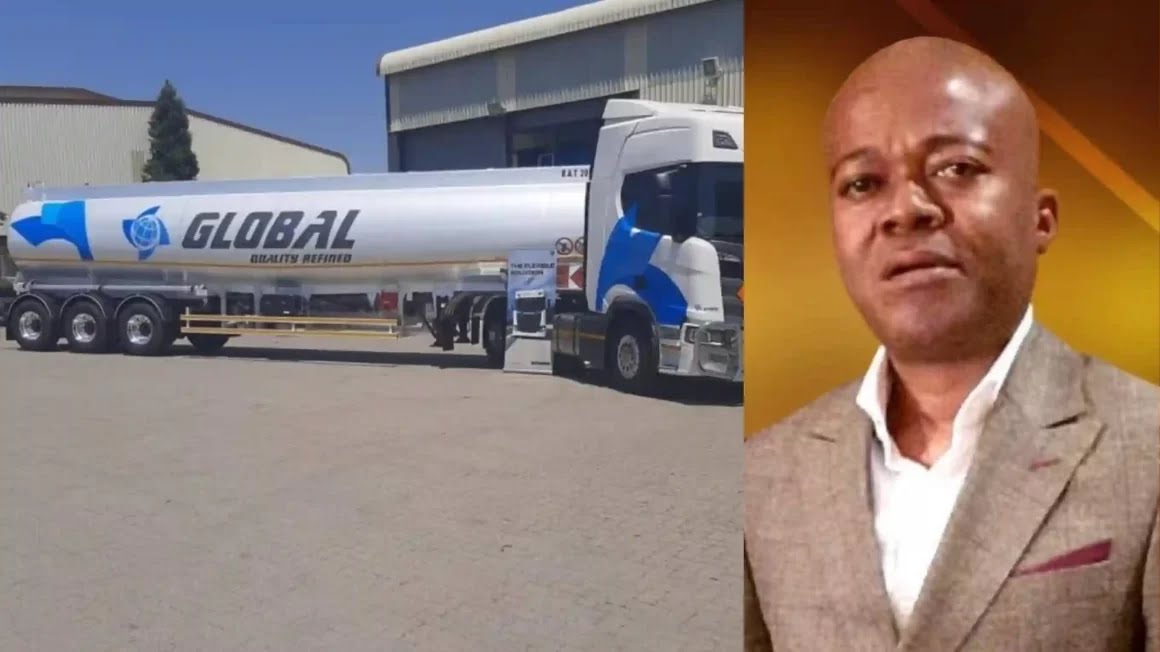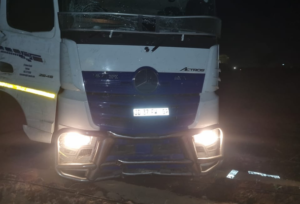
Just over a year after Limpopo businessman Theophilus Mphosi died, his sister made an urgent application to have his remains exhumed as she suspects the Global Oil CEO’s death was suspicious and may have involved foul play.
Moditswi Cindrella Ramokoto said she launched the legal action aimed at establishing the truth behind how and why her brother died. Mphosi died on June 5 last year at the age of 40.
Mphosi was the CEO of Rheinland group of companies and Global Oil. Mphosi saw the business grow from one franchise station in Senwabarwana (Bochum) in 2008 to over 100 Global filling stations by the time of his death.
Ramokoto, in an affidavit filed before the high court in Polokwane on Monday, asked for the right to exhume her brother’s remains from his burial site at Shakoleng Village, Senwabarwana.
“This application is brought for the forensic examination of his body, and to assist with criminal investigations into the circumstances of his passing and a formal inquest into my late brother’s passing”.
Read | Late Global Oil South Africa CEO, Theo Mphesi laid to rest
Ramokoto described her brother’s death as sudden and unexpected.
During his funeral, there were rumours on social media that Theo may have been poisoned but the family dismissed the speculations as unfounded.
Mphosi had been returning from a tombstone unveiling when, according to his bodyguard, he suddenly started to have fits .
He had reportedly previously been “fine with no complaints of coughing or pain”.
Mphosi passed away shortly after arriving at a hospital in Ermelo, Mpumalanga.
A June 6 2022 autopsy report, conducted by Dr Moleka Vincent Mojapelo, concluded Mphosi’s death was “consistent with pneumonia”.
She said Mphosi’s official cause of death was then listed as “Covid pneumonia” despite no evidence that he was sick with Covid-19.
Ramokoto said since his death, she had been concerned about the circumstances surrounding her late brother’s passing and had sought legal assistance to further investigate.
Ramokoto said in her view, the conclusions reached by Mojapelo made little sense and were not consistent with the manner of his death.
“I am of the view that there exists objective evidence surrounding the demise of Theo, which is highly suspicious and calls for a formal inquest hearing.”
Among the respondents listed are the deceased’s father Sidipa Mphosi and Mphosi’s widow, Nchadi, “in respect of whom divorce proceedings had been instituted and were pending”.
Ramokoto said after taking legal advice, she instructed her attorneys to obtain the assistance of an independent forensic pathologist Dr Sipho Mfolozi, who provided two reports this month.
In one report, Mfolozi highlighted that Covid pneumonia usually presented with a “fairly protracted episode of shortness of breath that progressively worsens and sometimes results in hospital admission”.
Mfolozi also wrote that Covid pneumonia rarely presented as an acute episode that rapidly leads to death within one or two hours in a previously asymptomatic person.
“However, the official autopsy inexplicably presents this as the cause of my late brother’s sudden and immediate passing. In these circumstances, Dr Mfolozi’s reports only reinforced my concern that my late brother’s passing is suspicious and may have involved foul play, and that the cause of his death could not have been Covid pneumonia.”
Ramokoto said it should have been clear to Mojapelo at the time of autopsy that the death of her brother met the criteria of a sudden, unexpected and unexplained death.
“This should have raised the suspicion of fatal poisoning and Dr Mojapelo would have been required to collect samples for toxicology analysis.”
She said her brother’s symptoms immediately before his death were described as slurring speech that made him appear to be “under the influence” but without the expected odour of liquor on the breath, arousable somnolence, sudden urinary incontinence and choking.
She said these symptoms occurred within a short period of time and were not characteristic of any obvious natural disease.
“Thus, poisoning should have been suspected and the appropriate samples should have been collected and sent for forensic toxicology analysis.”
Ramokoto said Mfolozi’s reports recommended that Mphosi’s remains be exhumed and that a second autopsy be performed by another medical examiner, which should include the prerequisite toxicology analysis and additional histology examination if possible.
“In light of this background, it is necessary to exhume my late brother’s remans so that a further independent forensic examination can be performed as soon as possible, and so that justice in relation to the circumstances of his passing can be ensured.”
In a supporting affidavit, Mfolozi said the state of Mphosi’s body will be in, when exhumed, cannot be predicted.
“Results from a second post mortem examination conducted on Mr Mphosi’s exhumed body, and of any subsequent analyses performed on tissue and other samples should be allowed to exist and interrogated, rather than pre-empted,” Mfolozi said.
Johannes Laurens, a forensic toxicologist and medical scientist, also filed an affidavit consenting to be appointed to perform toxicology tests on Mphosi’s remains.
Ramokoto has asked the application to be heard on Tuesday, September 5.
According to TimesLIVE, Mphosi’s widow and father have indicated they will oppose Ramokoto’s application.





